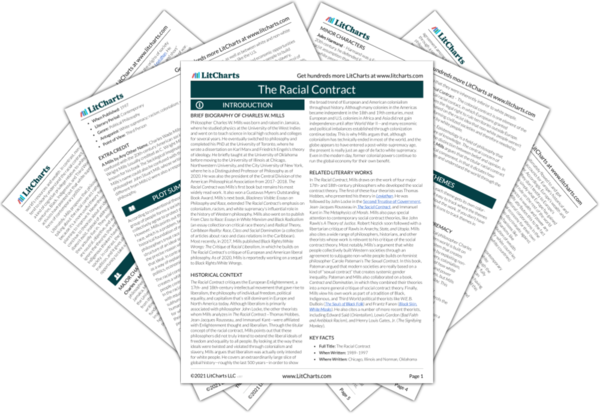Colonial Contract Quotes in The Racial Contract
Although no single act literally corresponds to the drawing up and signing of a contract, there is a series of acts—papal bulls and other theological pronouncements; European discussions about colonialism, “discovery,” and international law; pacts, treaties, and legal decisions; academic and popular debates about the humanity of nonwhites; the establishment of formalized legal structures of differential treatment; and the routinization of informal illegal or quasi-legal practices effectively sanctioned by the complicity of silence and government failure to intervene and punish perpetrators—which collectively can be seen, not just metaphorically but close to literally, as its conceptual, juridical, and normative equivalent.

Unlock explanations and citation info for this and every other The Racial Contract quote.
Plus so much more...
Get LitCharts A+We live, then, in a world built on the Racial Contract. That we do is simultaneously quite obvious if you think about it […] and nonobvious, since most whites don’t think about it or don’t think about it as the outcome of a history of political oppression but rather as just “the way things are.” […] In the Treaty of Tordesillas (1494) which divided the world between Spain and Portugal, the Valladolid (Spain) Conference (1550–1551) to decide whether Native Americans were really human, the later debates over African slavery and abolitionism, the Berlin Conference (1884–1885) to partition Africa, the various inter-European pacts, treaties, and informal arrangements on policing their colonies, the post-World War I discussions in Versailles after a war to make the world safe for democracy—we see (or should see) with complete clarity a world being governed by white people.












